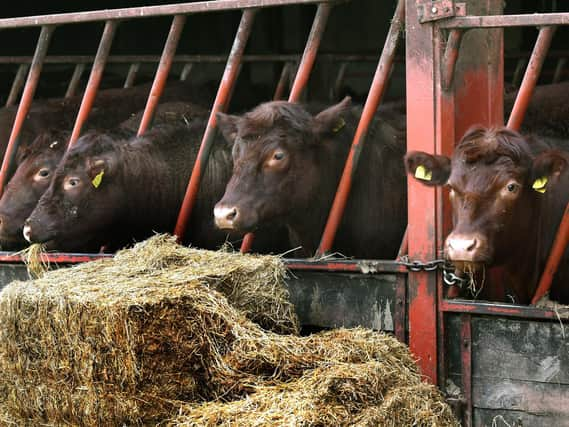MPs turn down amendment which would safeguard UK farming standards


The Bill, the biggest overhaul of UK farming policies since the end of the Second World War, returned to the Commons on Wednesday for its third and final reading before it goes before the House of Lords.
It outlines the way agriculture will be funded after leaving the EU, with the introduction of the new “public money for public goods” payment scheme putting the focus on animal welfare, the environment and sustainability.
Advertisement
Hide AdAdvertisement
Hide AdThere have been concerns about the lack of formal requirements in the Bill to uphold British farming standards during trade-deal negotiations, leading to fears over cheap imported food produced to standards illegal in the UK.
Farming and rural organisations have pushed hard for measures to safeguard the world-leading standards the UK has in food safety, animal welfare and environmental protection. And a number of amendments were put forward during the debate on Wednesday.
One, tabled by Environment, Food and Rural Affairs Committee chair Neil Parish, specifically asked that the Bill uphold British farmers’ high standards in any future trade deals the UK makes with countries.
MPs voted it down by 51 votes.
Mr Parish said it was disappointing to lose the amendment and said others in the Commons had “grave concerns”.
Advertisement
Hide AdAdvertisement
Hide AdThose concerns are shared by farming and environmental organisations nationwide.
Before the Bill went before the Commons the NFU North-East regional director, Adam Bedford, Yorkshire Wildlife Trust CEO, Rachael Bice, and the RSPB’s operations director for northern England, Jim Wardill, joined forces with the northern director of the CLA, Dorothy Fairburn, the Yorkshire Agricultural Society’s chief executive Nigel Pulling and Richard Emmott, director of public affairs for Yorkshire Water, to issue a joint statement urging MPs to support British agriculture.
They said: “As representatives of farming, environmental and animal welfare organisations across Yorkshire, we urge Yorkshire MPs both rural and urban to take this last proper opportunity to stand up for farming, the environment and rural communities.”
Their call was echoed across the country as a coalition of organisations, headed by the NFU, wrote to all 650 MPs asking them to “secure vital safeguards for the high standards of food safety, animal welfare and environmental protection that the British public values so highly”.
Advertisement
Hide AdAdvertisement
Hide AdThe statement highlighted the need for the industry to be fit to face the future.
“If UK farming is to face the future as a vital strategic sector, producing the food we eat and meeting the challenges of climate change, food security and the high expectations of the public in the way we treat our farmed animals and wildlife, the Bill must not undermine that very goal by allowing in food imports that fail to meet its high ideals.”
After the amendment’s defeat, CLA president Mark Bridgeman said the hope now was that the Lords would allow more time to scrutinise the risks to food production in not having a “level playing field” with international competitors.
He said: “We owe it to consumers to ensure any food we import under any trade deals meets the same high standards of animal welfare and environmental protection as is expected of UK producers.
Advertisement
Hide AdAdvertisement
Hide Ad“Importing food produced to low animal welfare and environmental standards to undercut UK farmers is unacceptable.”
David Bowles, head of public affairs for the RSPCA, said the charity welcomed the “public money for public goods” scheme rewarding farmers who improve their animal welfare practices, saying it could position England as a world leader for farm animal welfare.
He added: “However, we can’t ignore that other key aspects we hoped would be included have not been voted into law.
“We’re disappointed MPs did not vote to protect farmers from lower- welfare imports, despite the UK Government committing to this.
Advertisement
Hide AdAdvertisement
Hide Ad“At a time when the UK is negotiating trade deals with the USA, Australia and Japan, all of whom have lower legal requirements for farm animal welfare than the UK, any measures to raise our standards will be undermined if we are allowing in produce from animals reared to lower welfare standards, including in systems that would be illegal here.
“With hundreds of millions of animals farmed for food each year, this Bill has missed a unique opportunity to ensure our higher animal welfare standards are protected.”